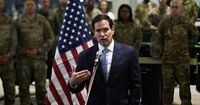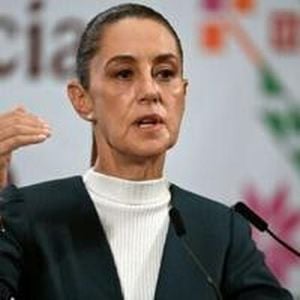On October 24, 2025, the usually quiet expanse of southern Israel’s industrial outskirts was abuzz with activity. US Secretary of State Marco Rubio, flanked by military personnel and international diplomats, stepped into a former warehouse now transformed into the Civil-Military Coordination Center—a nerve center for efforts to stabilize Gaza after two years of devastating conflict. His visit, coming just three days after Vice President JD Vance’s own high-profile tour, underscored the urgency and complexity facing the Trump administration’s peace initiative.
Rubio’s mission was clear: to shore up support for President Donald Trump’s ambitious peace agreement, a plan that now teeters under the weight of ongoing bloodshed in Gaza and simmering political intrigue in Jerusalem. As reported by Bloomberg, Rubio expressed “cautious optimism” about the deal’s prospects, even as the region’s wounds remained fresh. The warehouse-turned-command center, bustling with some 200 US military personnel and troops from a dozen countries, has become the operational heart of a fragile ceasefire and the international push to deliver aid and security to Gaza’s battered population.
But optimism was tempered by hard realities. During his visit, Rubio did not mince words about the United Nations Relief and Works Agency (UNRWA), the UN body long tasked with supporting Palestinian refugees. Citing Israeli evidence that some UNRWA employees participated in the Hamas-led atrocities of October 7, 2023, Rubio declared, “UNRWA is a subsidiary of Hamas.” As reported by the Foundation for Defense of Democracies (FDD), he continued, “It is not going to play any role in the delivery of aid to Gaza.” Instead, the US is prepared to work with a “conglomeration” of other UN and humanitarian organizations—if, as he put it, “they can make it work.”
This stance comes in the wake of the International Court of Justice’s (ICJ) October 22 ruling, which found that Israel must allow UN agencies into Gaza to facilitate humanitarian aid. The US State Department, however, denounced the decision as “corrupt,” calling the ICJ’s advisory opinion “nakedly politicized” and accusing it of unfairly bashing Israel while giving UNRWA “a free pass for its deep entanglement with and material support for Hamas terrorism.” Israel, for its part, has cut ties with UNRWA and insists that other humanitarian organizations can—and must—step in to fill the void.
As the debate over aid delivery raged, Rubio’s focus remained on the peace deal’s lynchpin: the rapid deployment of an international stabilization force to police the ceasefire. “It’s critical for the deal to create the conditions for the stabilization force to come in as soon as it possibly can be put together,” Rubio told reporters at the coordination center, according to France 24. This force, envisioned by Trump’s plan, would oversee security in Gaza following Israel’s ceasefire with Hamas. The war, sparked by Hamas’s unprecedented attack in October 2023, has left much of Gaza in ruins and its people in desperate need.
Rubio made it clear that Israel would have the right to veto any country’s participation in the stabilization force, a point of contention given reports that Israeli Prime Minister Benjamin Netanyahu is strongly opposed to Turkish involvement. “There’s a lot of countries that have offered to do it. Obviously, as you put together this force, it will have to be people that Israel is comfortable with,” Rubio emphasized. Turkey, a NATO member with a formidable military, has drawn Israeli suspicion due to its support for Hamas and sharp criticism of Israel’s actions in Gaza. Meanwhile, Indonesia and the United Arab Emirates have expressed willingness to contribute troops, with the UAE already involved in ceasefire monitoring.
The United States, Rubio noted, may seek a UN mandate for the force, recognizing that some countries require the world body’s imprimatur to deploy troops. Yet, reflecting the Trump administration’s broader skepticism toward the UN, Rubio reiterated his rejection of any future role for UNRWA in Gaza—a position welcomed by Israeli officials and echoed by FDD experts. “UNRWA must never return to Gaza,” Enia Krivine, Senior Director of FDD’s Israel Program, asserted, warning that the agency’s monopoly on aid was “deeply infiltrated by Hamas.”
On the ground, the ceasefire has brought a tenuous calm, but the scars of war remain visible everywhere. According to the territory’s health ministry, Israeli operations since October 2023 have killed more than 68,000 Palestinians and left hundreds of thousands homeless. Many families are now returning to find their homes destroyed or located in zones still controlled by Israeli forces beyond the so-called “Yellow Line.” As one displaced resident, Hani Abu Omar, told AFP, “All my life I’ve been working, earning, and doing everything I can to build a house.” Now, like so many others, he faces the daunting task of rebuilding from scratch.
The international force’s arrival is seen as a potential gateway to unlocking much-needed reconstruction funds, but US officials have vowed that none will go to Hamas-held areas. Meanwhile, the Palestinian factions—including Hamas—met in Cairo on October 24 and agreed that an independent committee of technocrats would temporarily govern Gaza, managing basic services in cooperation with Arab states and international bodies. This committee’s formation is a nod to the need for impartial governance, even as Hamas itself has refused to disarm its fighters or re-assume direct control of post-war Gaza.
Despite these steps, significant hurdles remain. The World Health Organization (WHO) reported on October 23 that, while there has been a new abundance of fruit, vegetables, cheese, and coffee entering Gaza, the overall flow of humanitarian aid is still insufficient and hunger persists. “The situation still remains catastrophic because what’s entering is not enough,” WHO chief Tedros Adhanom Ghebreyesus said bluntly. Hamas, for its part, announced on October 24 that it had received “clear guarantees” from Egypt, Qatar, and Turkey that “the war has effectively ended,” and called for increased pressure on Israel to allow more aid into the enclave.
Political tensions are never far from the surface. The Trump administration, while leaning on Netanyahu to respect the ceasefire, has also urged Israel not to annex the occupied West Bank—a move that would inflame Arab states and further complicate the fragile truce. During Rubio’s visit, the Israeli parliament advanced laws calling for annexation, prompting Vice President Vance to describe the move as a personal affront. Rubio, for his part, downplayed the prospect, saying, “Suffice it to say we don’t think it’s going to happen.”
As the dust settles over Gaza, the international community faces a daunting checklist: deploy a trusted stabilization force, deliver enough aid to stave off catastrophe, and support a governance structure that can command legitimacy without empowering extremists. The coming weeks will test whether cautious optimism can translate into lasting peace—or whether old divisions will once again erupt into violence.




